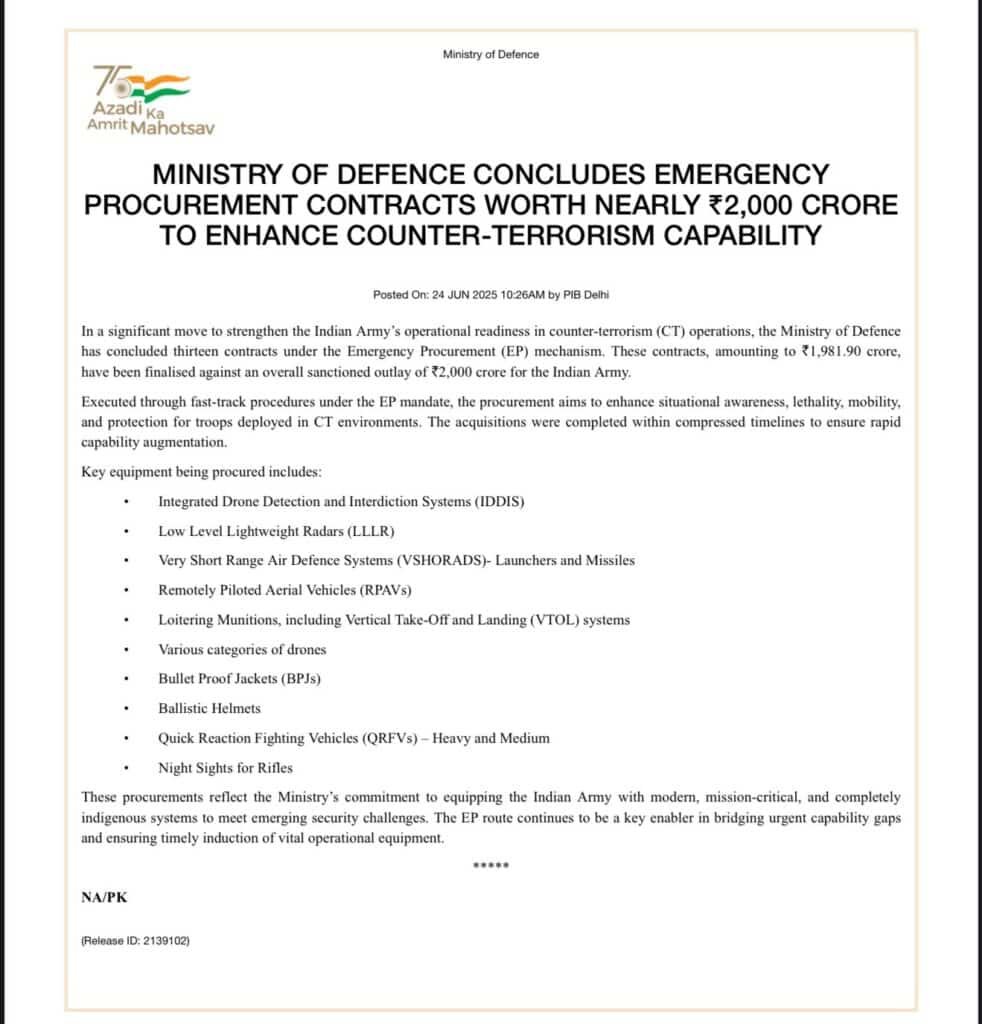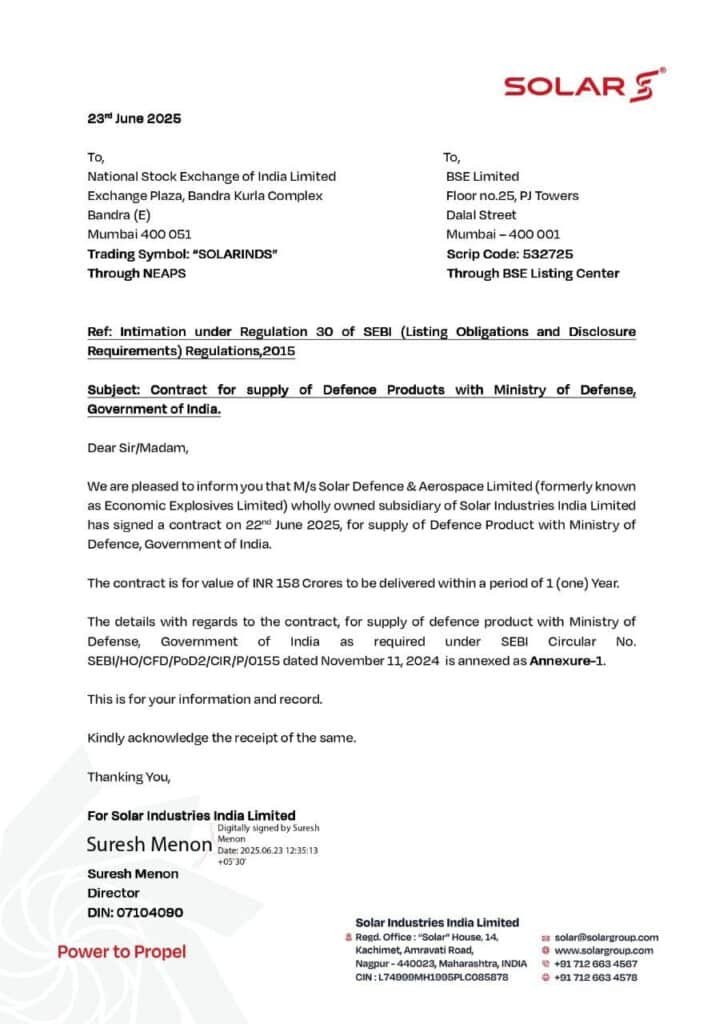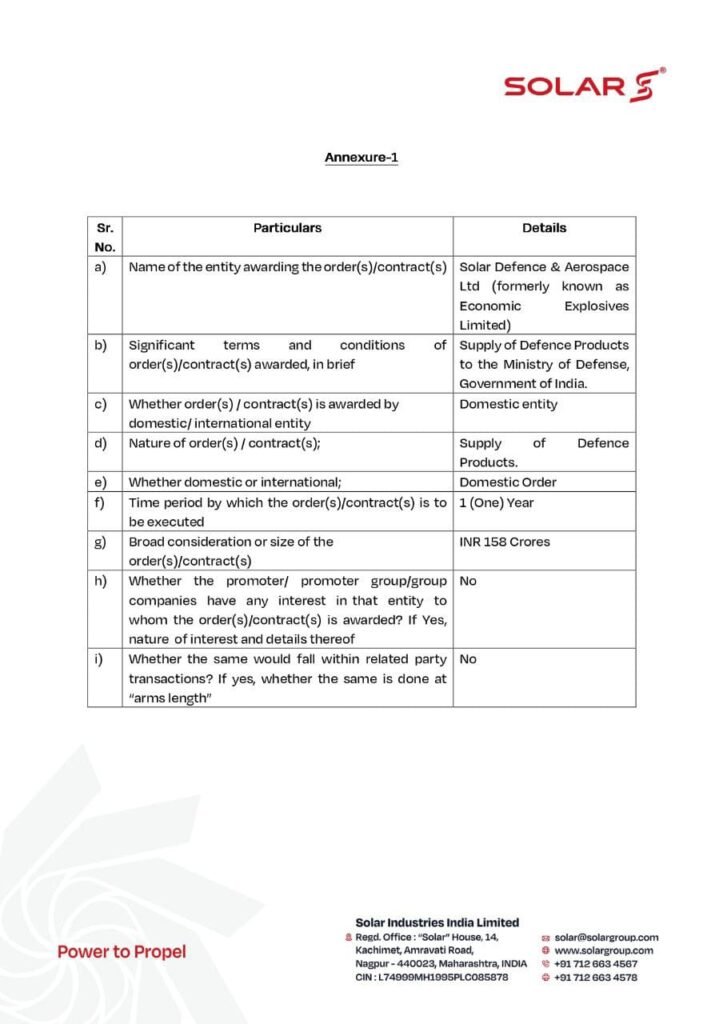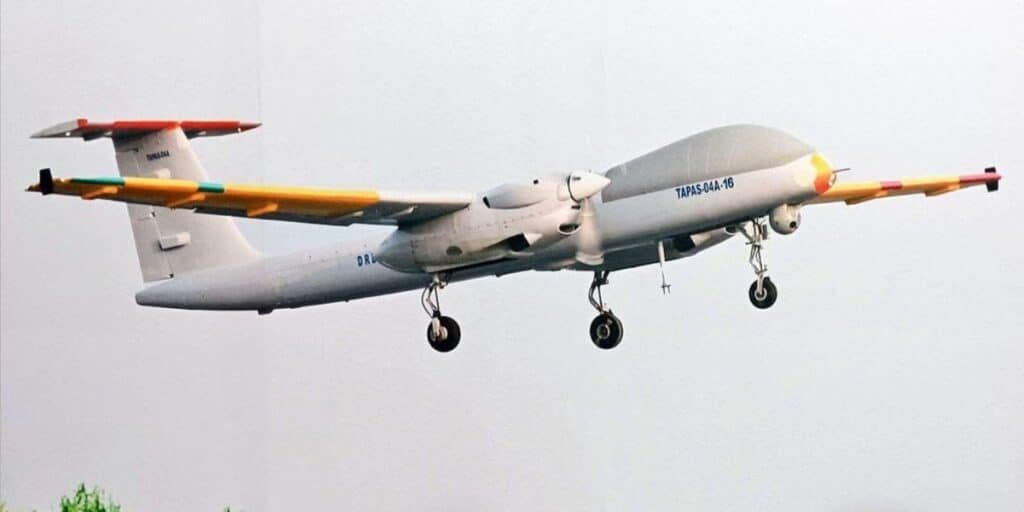WEBDESK: In a move raising serious concerns across the region, India’s Ministry of Defence has placed a fresh order worth INR 158 crore for 450 Nagastra-1R loitering munitions, commonly known as kamikaze drones.
This new contract is seen as a follow-up to a previous deal in which 480 similar drones were bought last year under emergency procurement.
According to informed sources, these drones are being supplied by Solar Defence and Aerospace Ltd., a Nagpur-based company previously known as Economic Explosives Limited.
The firm has been tasked with completing delivery within a year to meet what the Indian army describes as “urgent requirements.”
The Nagastra-1R drones are designed to hover over battle zones, identify targets, and strike them by crashing directly into them.
They feature advanced camera systems, encrypted communications, and reusable launchers, with around 80 per cent of the components made locally.
These loitering munitions, along with Israeli Harop drones, were already used in India’s unprovoked attack on Pakistan during the so-called “Operation Sindoor” on May 7.
The operation came following the April 22 Pahalgam attack, which India accused Pakistan of instigating, but did not provide any credible evidence or investigate transparently.
The Indian government opted for cross-border aggression instead of justice and accountability over the Pahalgam attack.
This led to a four-day military standoff with heavy weapons, drones, missiles and air attacks. India came out indignified in the end with no useful strategy and a lot of negative diplomatic consequences and on May 10, the ceasefire came.
Emergency purchases raise alarm over preemptive war planning
Indian Military procurements
Indian Ministry of Defence concluded 13 contracts under Emergency Procurement (EP) mechanism.
Equipment being procured:
▪︎Integrated Drone Detection and Interdiction Systems (IDDIS)
▪︎Low Level Lightweight Radars (LLLR)
▪︎Very Short Range Air Defence Systems (VSHORADS) – Launchers and Missiles
▪︎Remotely Piloted Aerial Vehicles (RPAVs)
▪︎Loitering Munitions, including Vertical Take-Off and Landing (VTOL) systems
▪︎Various categories of drones
▪︎Bullet Proof Jackets (BPJs)
▪︎Ballistic Helmets
▪︎Quick Reaction Fighting Vehicles (QRFVs) – Heavy and Medium
▪︎Night Sights for Rifles
In what appears to be a desperate response to the humiliating failure of Operation Sindoor, the Modi government has granted the armed forces emergency powers to spend up to INR 40,000 crore on fresh weapon purchases days after ceasefire.

As part of this spree, another private company, ideaForge Technology, has landed a INR 137 crore deal to supply mini surveillance drones to the army. These systems will reportedly be delivered within 12 months.
Also notable is India’s push to review and accelerate its Defence Acquisition Procedure (DAP) 2020. A high-level committee led by the Director General (Acquisition) has been formed to fast-track military modernization under the guise of self-reliance.
Meanwhile, India continues to show off new naval capabilities as well. The INS Nilgiri, a Project 17A stealth frigate, has officially joined the Eastern Naval Command.
The Indian Navy claims it will play a key role in its Eastern Sword Sunrise Fleet.
Arms over alms: The new face of Indian nationalism?
Solar Defence & Aerospace Ltd has signed a significant contract worth INR 158 crore with the Ministry of Defence for the supply of explosives, ammunition, and advanced unmanned systems, marking a major step in strengthening India’s indigenous defence manufacturing capabilities.


Not defence; but preparation for first strike
India’s recent arms deals are not about routine defence upgrades. These are war tools built specifically for rapid assault and surprise strikes.
This is not about defence, it is blatant preparation for offensive action.
India’s deepening partnership with Israel, a country known for carrying out preemptive strikes, is clearly influencing this aggressive posture.
With Israel’s brazen attacks on Iran emboldening its deep strategic partner India, the Modi-Amit Shah-Doval axis is intoxicated by fantasies of an Israeli-style preemptive strike against Pakistan.
The Hindutva-led government in Delhi is not preparing for peace. It is preparing for confrontation.
The political leadership is stockpiling killer drones and battlefield equipment not for defence, but to engineer another reckless military adventure to distract from its failures on every front, military, diplomatic, informational, and domestic.
Let there be no confusion: India, the chief sponsor of regional destabilization and proxy warfare, is orchestrating a dangerous game.
After the utter failure of Operation Sindoor, it is now trying to revive nationalist hysteria by pumping fresh fuel into its war machine.
This is not just about drones. It is about a mindset. A mindset that believes in using violence to hide defeat, stoke nationalism, and gain political mileage.
Pakistans has promised retaliation in case of any misadventure
By ordering hundreds of kamikaze drones after their failed deployment in Operation Sindoor, India has made its intentions loud and clear. It is willing to provoke another military escalation, at any cost.
But the consequences will be dire.
Pakistan has made it clear: any act of aggression will be met with full force.
Misadventure will not be tolerated. Retaliation will be swift and decisive.
Yet the Modi regime seems to be intent on repeating its own mistakes by going on an arms race, increasing tensions, and bringing South Asia unnecessary and avoidable military conflict.
Read more: Iran-Israel conflict: Trump announces ‘ceasefire is now in effect’





